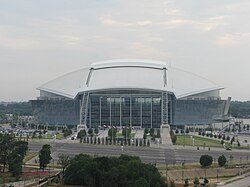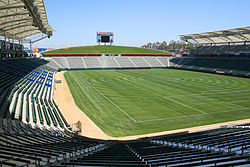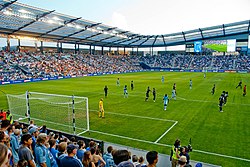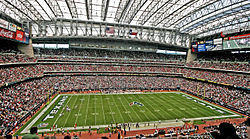| Copa de Oro de la CONCACAF 2011 (in Spanish) | |
|---|---|
 | |
| Tournament details | |
| Host country | United States |
| Dates | June 5–25 |
| Teams | 12 (from 1 confederation) |
| Venue | 13 (in 13 host cities) |
| Final positions | |
| Champions | |
| Runners-up | |
| Tournament statistics | |
| Matches played | 25 |
| Goals scored | 80 (3.2 per match) |
| Attendance | 1,140,602 (45,624 per match) |
| Top scorer(s) | (7 goals) [1] |
| Best player | |
| Best goalkeeper | |
| Fair play award | |
← 2009 2013 → | |
The 2011 CONCACAF Gold Cup was the 11th edition of the CONCACAF Gold Cup competition, and the 21st CONCACAF regional championship overall in CONCACAF's 50 years of existence. The United States was the host nation.
Contents
- Venues
- Teams
- Qualification
- Squads
- Group stage
- Group A
- Group B
- Group C
- Ranking of third-placed teams
- Knockout stage
- Bracket
- Quarter-finals
- Semi-finals
- Final
- Statistics
- Goalscorers
- Awards
- References
- External links
The competition started on June 5, 2011, at Cowboys Stadium in Arlington, Texas and ended with the final on June 25, 2011, at the Rose Bowl in Pasadena, California, [2] with Mexico beating the United States 4–2.
This competition was the fifth tournament without guests from other confederations. Mexico won their sixth Gold Cup, and ninth CONCACAF Championship overall. It was the third consecutive Gold Cup final and second consecutive win also.
As winner of the tournament, Mexico qualified for the 2013 FIFA Confederations Cup in Brazil as the representative from CONCACAF. [3] [4]













